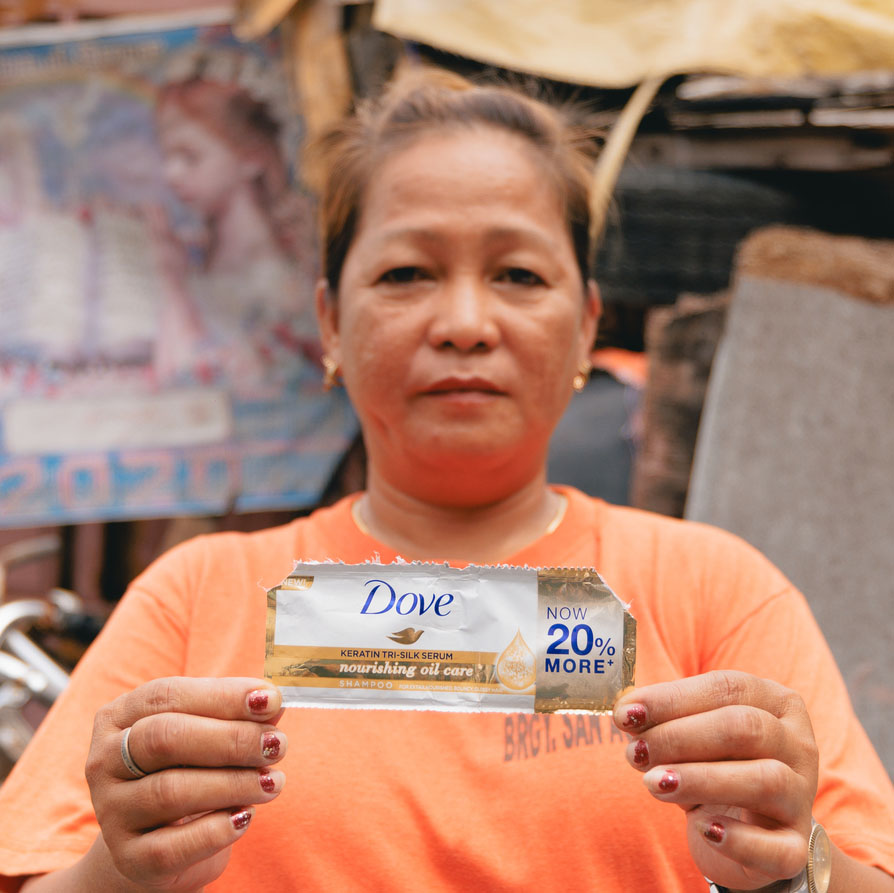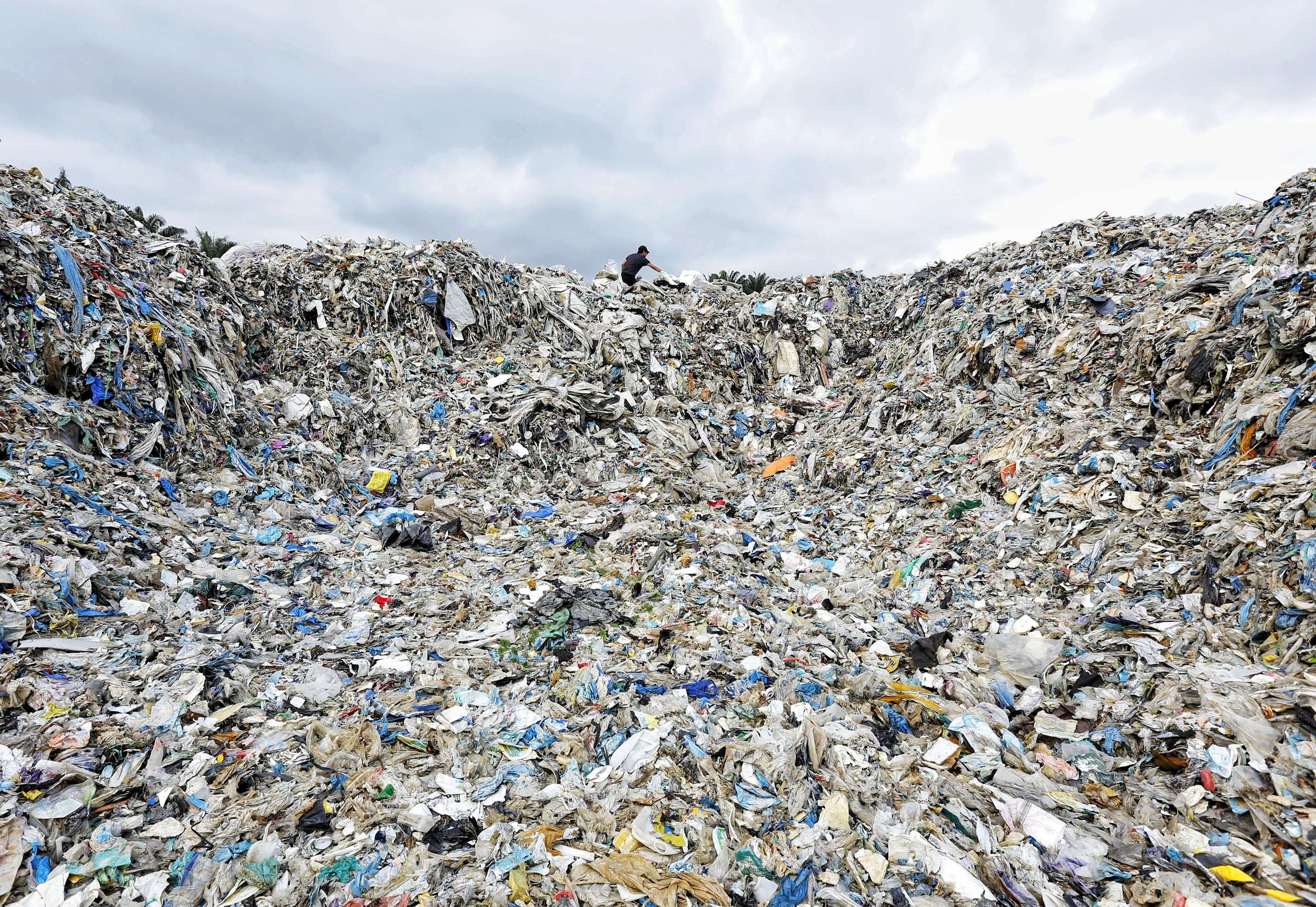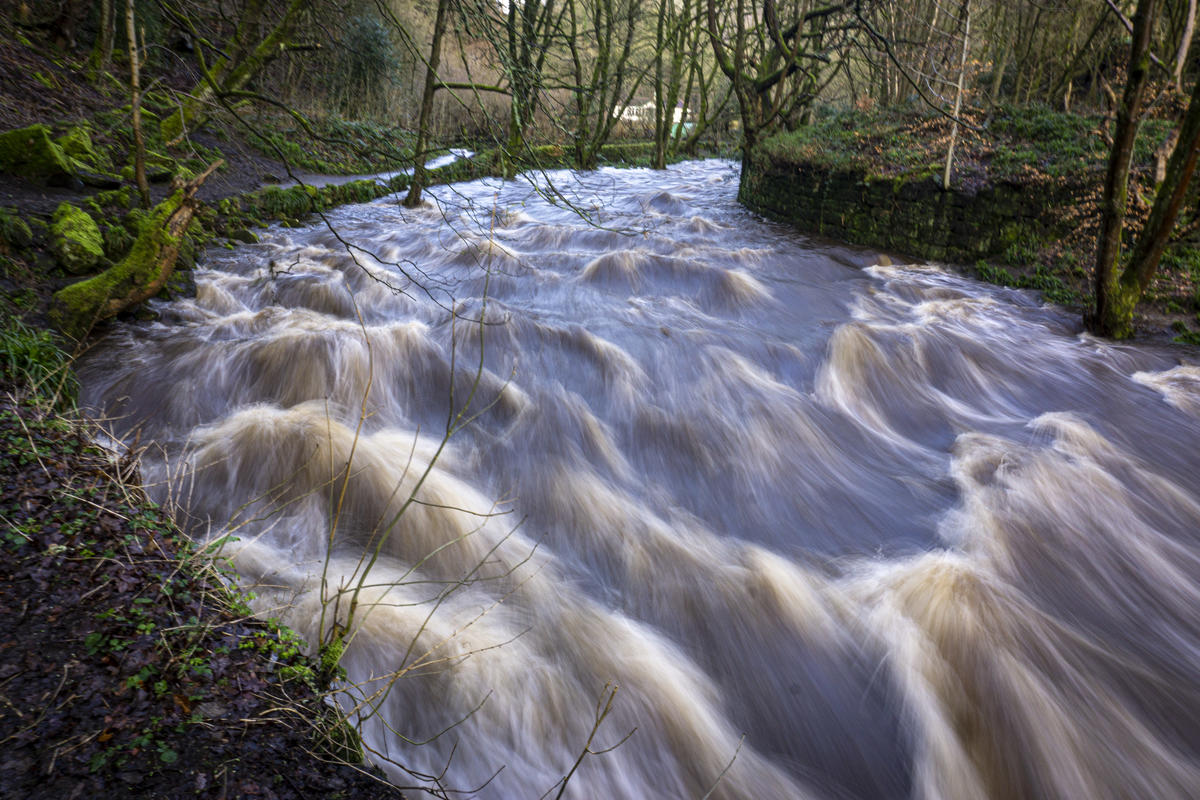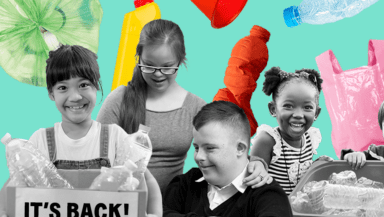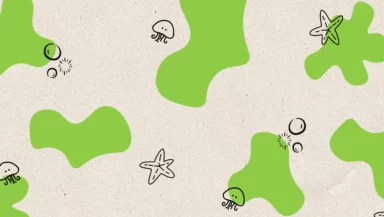Ahhh, summer is on its way. Time to peel back the layers and let the sun hit your skin for the first time in months. You might be about to reach for the body cream or ultra-moisturising body wash, to banish dry winter skin. You might even use some gloop made by world-famous skincare brand Dove.
But Dove’s toxic single-use plastics are causing real harm to women and children all over the world. And despite over 140,000 people demanding they stop, Dove has scaled back their environmental ambition.
So Greenpeace is taking the fight against Dove’s disgusting waste to the next level. Here are five reasons to ditch Dove’s products this summer.
1) For 20 years, Dove’s been using women’s empowerment to sell super-polluting plastic
Dove is celebrating the 20th anniversary of their Real Beauty campaign – but it’s actually 20 years of Real Harm to nature and women.
For many years, Dove was leading the way in inclusive advertising of women’s skincare products. All of a sudden, a couple of decades ago, models were all shapes and sizes, and all skintones were gloriously celebrated. Dove led the way.
Back when it started, Dove’s “Campaign for Real Beauty” felt pretty hopeful. Finally, a brand was showing diversity and body positivity in advertising – changes that many women wanted to see.
But 20 years on, it’s clear it’s just a PR trick – a ruse to get customers to feel like Dove cares about women everywhere. The truth is, Dove’s products are packaged in plastic that’s causing real harm to nature, women’s and children’s health.

